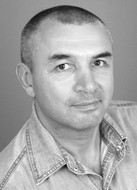Academic rifle shooting sport optimizing initiatives for Russian GTO complex tests
Фотографии:
ˑ:
PhD, Associate Professor V.A. Gromov1
R.G. Shaikhetdinov1
A.A. Bakushin1
PhD S.V. Mikhailova2
1South Ural State University (SRU), Chelyabinsk
2Financial University under the Government of the Russian Federation - Chelyabinsk Branch, Chelyabinsk
Objective of the study was to offer academic mass rifle shooting sport scheduling and group-specific optimizing initiatives for success in the GTO Complex tests. The process optimizing model was tested on the following Experimental Groups: EG1 trained for 2 weeks (4 sessions); EG2 trained for one month (8 sessions); EG3 trained for 2 months (16 sessions); and EG4 trained for 4 months (one semester of 32 sessions); with the group progress rated versus that in the TPG (Theory Prioritizing Group) and Reference Group (RG) trained as required by the traditional practical GTO shooting practice dominated model; with each group composed of 32-35 people. The EG trainings were designed to include the traditional training tools and varied in the training periods. The TPG trainings were dominated by the theoretical studies with a special emphasis on self-reliant learning. The groups were offered additional scheduled sessions and short-term focused training courses for the shooting mastery excelling purposes. The study data and analyses demonstrated benefits of the short-term focused trainings for the GTO Complex tests including 8 sessions. The process optimizing model showed benefits in the technical aspects of the training for the GTO Complex tests and gives the means to accumulate significant resource for success in the key combined shooting events.
Keywords: university, mass shooting practices, GTO, success rate.
References
- Gromov V.A., Shklyaev V.V., Skutin A.V. Povyshenie rezultativnosti v vypolnenii kompleksa GTO v universitete [Increasing effectiveness in performance of the GTO complex at the university]. Vestnik Chelyabinskogo gosudarstvennogo pedagogicheskogo universiteta, 2016, no. 10, pp. 24-29.
- Zubrilov R.A. Stanovlenie, razvitie i sovershenstvovanie tekhniki strelby v biatlone [Formation, development and perfection of shooting technique in biathlon]. 2nd ed., rev., sup.. Moscow: Sovetskiy sport publ., 2013, 352 p.
- Kuzmenko G.A. Teoreticheskaya podgotovka yunykh sportsmenov v sisteme realizatsii zadach intellektualnogo razvitiya lichnosti [Theoretical training of junior athletes in personality intellectual development tasks implementation system]. Kultura fizicheskaya i zdorovye, Voronezh, 2011, no. 4, pp. 39-43.
- Matveyev L.P. Teoriya i metodika fizicheskoy kultury [Theory and Methods of Physical Culture]. 3rd ed., rev., sup.. Moscow: Fizkultura i sport, SportAkademPress publ., 2008.
- Machula A.F. Srednie pokazateli psikhofizicheskoy podgotovlennosti yunoshey 19-20 let, zanimayuschikhsya pulevoy strelboy. V 2 t. T. 1 [Average indices of mental and physical fitnees of 19-20 year-old males practicing bullet shooting. In 2 vols. Vol. 1]. Tula: TGPU publ., 2010, pp 155-159.
- Ratov I.P., Popov G.I., Loginov A.A. et al. Biomekhanicheskie tekhnologii podgotovki sportsmenov [Biomechanical technologies of athletic training]. Moscow: Fizkultura i sport publ., 2007, 120 p.
- Shaykhetdinov R.G., Gromov V.A. Dostizhenie vypusknikom universiteta psikhofizicheskoy gotovnosti k professionalnoy deyatelnosti [University graduate's psychophysical vocational fitness: methods of achievement]. Teoriya i praktika fizicheskoy kultury, 2016, no. 3, pp. 26-28.
- Lubysheva L.I., Cherepov E.A. The Structure of Applied Military Competence of Military Science Department Students in the Traditional University. Human. Sport. Medicine, 2016, vol. 16, no. 3, pp. 67–74. (in Russ.) DOI: 10.14529/hsm160308.




 Журнал "THEORY AND PRACTICE
Журнал "THEORY AND PRACTICE